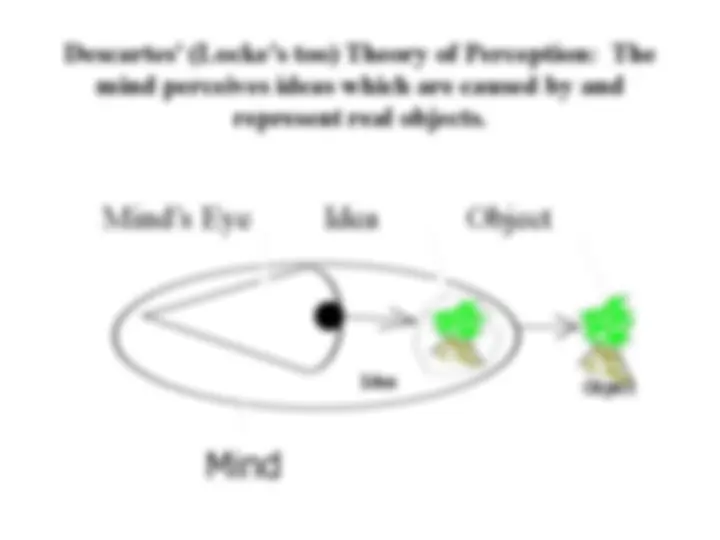








Study with the several resources on Docsity

Earn points by helping other students or get them with a premium plan


Prepare for your exams
Study with the several resources on Docsity

Earn points to download
Earn points by helping other students or get them with a premium plan
Community
Ask the community for help and clear up your study doubts
Discover the best universities in your country according to Docsity users
Free resources
Download our free guides on studying techniques, anxiety management strategies, and thesis advice from Docsity tutors
His aim is to offer an argument for the existence of God, based simply on what (after the first two Meditations) he knows with certainty.
Typology: Summaries
1 / 12

This page cannot be seen from the preview
Don't miss anything!







“ I will now shut my eyes, block my ears, cut off all my senses. I will regard all my mental images of bodily things as empty, false and worthless .... I will ... examine myself more deeply, and try ... to know myself more intimately. I am a thing that thinks, i.e that doubts, affirms, denies, ... [etc]. This thing also ... has sensory perceptions; ... even if the objects of my sensory experience ... don’t exist outside me, still sensory perception ..., considered simply as mental events, certainly do occur in me. ”
I previously accepted as perfectly certain and evident many things ...—the earth, sky, stars, and everything else that I took in through the senses—but in those cases what I perceived clearly were merely the ideas or thoughts of those things that came into my mind .... But I used also to believe that my ideas came from things outside that resembled them in all respects. .... [This] was false; or anyway if it was true it was not thanks to the strength of my perceptions.
“ When ideas are considered solely in themselves and not taken to be connected to anything else, they can’t be false; for whether it is a goat that I am imagining or a chimera, either way it is true that I do imagine it. .... All that is left—the only kind of thought where I must watch out for mistakes—are judgments. And the mistake they most commonly involve is to judge that my ideas resemble things outside me. ’
ll (^) s.rlsrD€' {l.r Prt*, i.e) (^) R6ALfi't
WI,.+-r(iu{..) "^ I.,h"''
P65:bla,
"N,r9'5 (^) I
l ,,.rh.|I t/*.y
caused by things that exist outside my mind, and that my ideas “resemble them.”